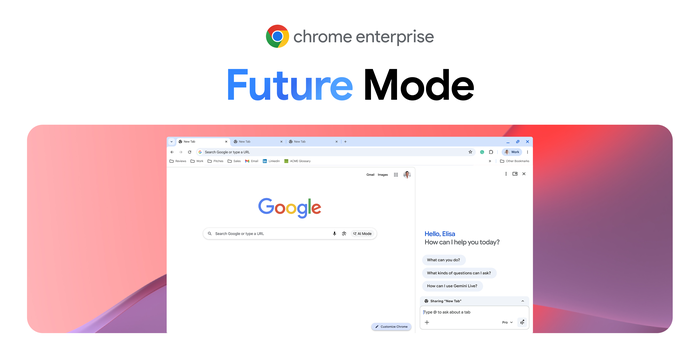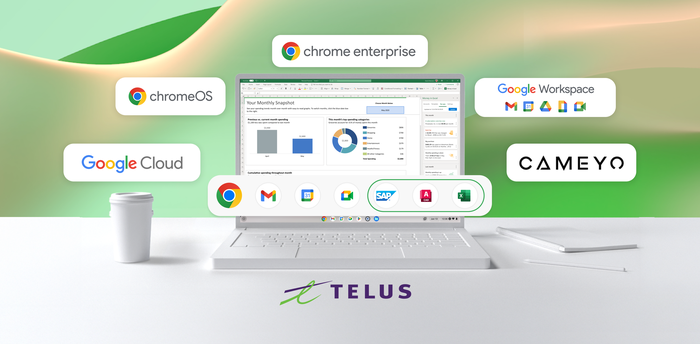Village Hotel Club: 33 locations unified with ChromeOS

Dan Morley
Head of IT Infrastructure and Service Delivery, Village Hotel Club
Creating collaboration amongst Village hotel clubs 33 UK locations
Contact Chrome Enterprise
Learn more about how Chrome Enterprise can help your organization.
Get in touchEditor’s note: Today’s post is by Dan Morley, Head of IT Infrastructure and Service Delivery for Village Hotel Club, based in Warrington, United Kingdom. Village Hotel Club operates 33 hotels with health and wellness clubs and event spaces throughout the UK. The company is using ChromeOS devices to help employees work together across all locations, and to better serve customers.
Village Hotels has become a very cloud-centric company: It’s how we connect 1,500 back-of-house employees who need to serve customers who are booking rooms, signing up for health and wellness club memberships, or planning weddings and events. Ease of access to data is key, but so is security. Our company is embracing remote work, so we have to offer an open and collaborative work environment, while keeping data secure.
Security and collaboration in the cloud
When you have fixed desktop machines in offices, employees can’t go out and tend to customers — like people who want tours of our health and wellness clubs or special-event spaces. A few years ago, we shifted from Microsoft on-premise products to Microsoft cloud applications. That was a big leap into the cloud, but we needed more secure and flexible features if we were going to realize our vision of secure collaboration. The cloud platform through Microsoft Office 365 seemed complicated and cumbersome for our three-person IT team so we needed another solution.
Thanks in part to the easy and successful adoption of Google Workspace, we replaced Windows with ChromeOS. Security and easy management ticked off the boxes for us, especially as a small IT team. ChromeOS automatically updates, which improves our security and saves us time. The Google Admin console does the same, allowing us to manage every device with a few clicks. All policies are pushed down to the devices, and we have a single asset management tool. Everything is in the Google Admin console, giving us one view into all of our endpoints.
We’re also impressed with the ease of handling device security. ChromeOS devices don’t store data, which protects us if the devices are misplaced. We can remotely wipe devices from anywhere. We’d heard that ChromeOS devices can’t be hacked or attacked by ransomware, so we asked a consultant to do his best to hack one of our ChromeOS devices — and he failed. That was when we knew Google’s claim was true — our ChromeOS devices were secure!”
We’d heard that ChromeOS devices can’t be hacked or attacked by ransomware, so we asked a consultant to do his best to hack one of our Chromebooks — and he failed. That was when we knew Google’s claim was true — our ChromeOS devices were secure
Dan Morley, Head of IT Infrastructure and Service Delivery, Village Hotels
Our adoption of ChromeOS devices has reduced our risk and strengthened our security posture. We’ve also reduced the administrative overhead costs of managing devices. Instead of having to manage several Microsoft file servers to keep up with security, we simply use the Google Admin console. That’s where I can recover data, change permissions, apply data loss prevention rules, and run audits.
Easy access to software apps with Cameyo
Over the 17 years I’ve been at the company, we’ve doubled in size, and we keep growing as we develop new hotel properties. ChromeOS helps us keep pace with this growth, and it’s now the centerpiece of our back-of-house operations at Village Hotel Club. Each day, most employees use their ChromeOS device equipped with Chrome and Google Workspace tools like Google Meet.
Our people need a reliable application experience because any disruption to their workflow would directly impact customer service. ChromeOS works well with other cloud software and that’s vital to our business. Our 100 contact center agents, who work at home with their ChromeOS device, use Mitel Ignite, a Windows-based omnichannel manager, through Cameyo.
The partnership with Cameyo was our “embrace the cloud” moment. We needed a seamless way to provide people with access to legacy apps on ChromeOS.
We use the hosted version of Cameyo in Google Cloud, which allows the agents to access Mitel Ignite with a special portal through Chrome browser. With ChromeOS and Cameyo, we were able to avoid the cost of buying new hardware and software that would have been needed to use Windows software.
The health and wellness club management side of the Village Hotel Club business also has the Cameyo setup. The employees use Exerp, a Windows member management application, that we can push to ChromeOS devices with Cameyo — yet another way we can improve access to an app in an easy and flexible way. At every hotel’s leisure center, two Chromebooks are available for employees to share. Employees can take a ChromeOS device with them as they walk prospective members through our facilities, and then complete membership applications through Exerp and ChromeOS.
ChromeOS has revolutionized the way we work and revolutionized my role as an IT manager keeping data, people, and devices safe. It has also improved collaboration to the point that I couldn’t imagine how we could work effectively without them
Dan Morley, Head of IT Infrastructure and Service Delivery, Village Hotels
A revolution in sharing business data securely
Every Village Hotel Club location operates as its own ecosystem for its own communities and customers. But with ChromeOS, the hotels aren’t isolated. Our 33 hotels and one head office work towards the same business goals. ChromeOS has revolutionized the way we work and revolutionized my role as an IT manager keeping data, people, and devices safe. It has also improved collaboration to the point that I couldn’t imagine how we could work effectively without them.



